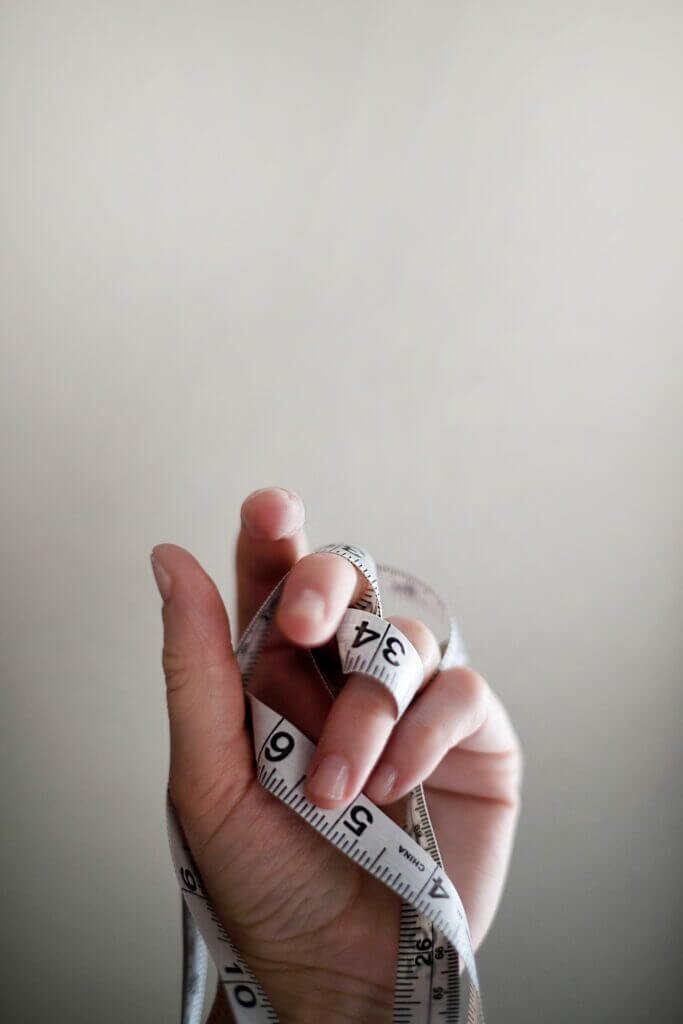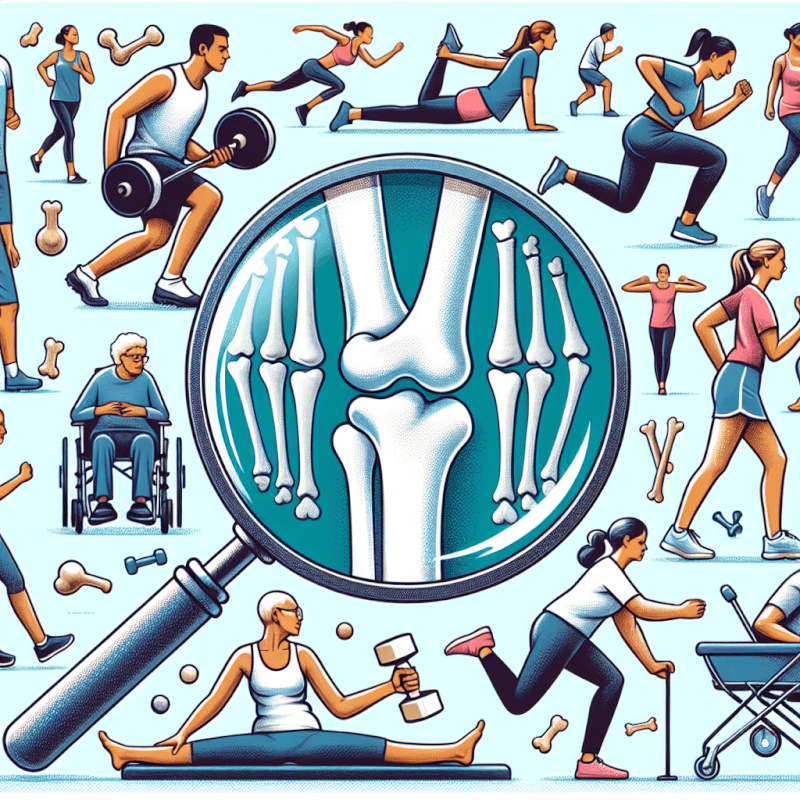If you’ve ever wondered what types of exercises are most effective for improving bone density, you’ve come to the right place. In this article, we will explore the various types of exercises that have been shown to have a positive impact on bone health. From weightlifting to high-impact activities, we’ll uncover the best ways to strengthen your bones and improve your overall bone density. So, grab your workout gear and get ready to discover the exercises that will keep your bones strong and healthy.
Weight-bearing Exercises
When it comes to improving bone density, weight-bearing exercises are essential. These exercises require you to support your own body weight and engage your bones and muscles in the process. Running is a great example of a weight-bearing exercise that can have a positive impact on bone health. Not only does it help to strengthen your leg bones, but it also works the bones in your feet, hips, and spine. Jumping rope is another effective weight-bearing exercise that can increase bone density, especially in the feet and lower legs. Walking, although a low-impact exercise, can still provide some degree of weight-bearing benefits for your bones. By putting weight on your legs with every step, you encourage bone remodeling and stimulate bone growth. Stair climbing is another weight-bearing exercise that can be easily incorporated into your daily routine. The repetitive action of climbing stairs helps to strengthen the bones in your legs and hips, improving bone density over time.
Resistance Training
Resistance training involves using external force or weights to challenge your muscles and bones. It is an effective way to increase bone density and strength. Free weights, such as dumbbells and barbells, are versatile tools that can be used to target specific muscle groups and stimulate bone growth. Weight machines at the gym provide stability and support, allowing you to safely perform resistance exercises that target various body parts. Additionally, bodyweight exercises, such as push-ups, squats, and planks, can also contribute to improving bone density. By using your own body weight as resistance, you engage multiple muscle groups and put stress on your bones, leading to increased bone strength and density.

High-Impact Exercises
High-impact exercises involve repetitive weight-bearing movements that cause both feet to leave the ground simultaneously. These exercises can provide significant benefits for bone density. Aerobic activities like high-intensity aerobics or dancing involve quick movements and jumping, which create an impact on your bones and stimulate bone growth. These activities strengthen the bones in your lower body, including your legs and hips. Sports like basketball and tennis also fall into the high-impact exercise category. The constant jumping, running, and pivoting put stress on your bones, promoting bone density improvements. Engaging in these types of exercises regularly can have a positive impact on your overall bone health.
Low-Impact Exercises
Low-impact exercises are gentler on your joints and involve less force on your bones compared to high-impact exercises. Swimming is an excellent low-impact exercise that provides a full-body workout while minimizing stress on your bones and joints. The water’s buoyancy supports your body weight, reducing the risk of injury while still providing resistance to strengthen your muscles and bones. Cycling is another low-impact exercise that can improve bone density, particularly in the lower body. The smooth, circular motion of pedaling places minimal stress on your joints while effectively working your leg bones. Elliptical training offers a low-impact alternative to running or jogging, as it mimics the motion of these activities without the same level of joint impact. Engaging in low-impact exercises regularly can help maintain bone health while minimizing the risk of injury.

Strength Training
Strength training exercises focus on building muscle strength, but they also have significant benefits for bone density. Deadlifts are a compound exercise that engages multiple muscle groups, including your glutes, hamstrings, and lower back. This exercise also places stress on your leg bones, promoting increased bone density. Squats are another effective strength training exercise that targets various muscle groups, including your quadriceps, hamstrings, and glutes. As you perform squats, your leg bones bear the weight, leading to bone remodeling and increased bone density. Lunges are another great strength training exercise that not only work your leg muscles but also stimulate bone growth. Step-ups, where you step onto an elevated surface repeatedly, are another weight-bearing exercise that targets the bones in your legs and hips, improving bone density over time.
Plyometric Exercises
Plyometric exercises are high-intensity movements that involve rapid changes from lengthening to shortening muscle contractions. These explosive exercises can have a positive impact on bone density. Box jumps are a popular plyometric exercise that involves jumping onto a raised platform and then stepping or jumping back down. The impact and landing force of the jump stimulate bone growth, making it an excellent exercise for improving bone density. Burpees are another plyometric exercise that targets multiple muscle groups while providing weight-bearing benefits for your bones. Jump squats combine the benefits of jumping and squatting, incorporating both powerful lower body movements and weight-bearing impact. Implementing plyometric exercises into your routine can enhance bone density and overall bone health.

Balance and Stability Exercises
Balance and stability exercises focus on improving your overall balance and proprioception. While not directly targeting bone density, these exercises contribute to overall bone health by reducing the risk of falls and fractures. Tai Chi is a gentle martial art and exercise that emphasizes balance, coordination, and stability. It involves slow, controlled movements and shifting your weight from one leg to the other, which can help improve bone density over time. Yoga is another exercise that enhances balance and stability, requiring you to hold various poses and engage different muscle groups. Incorporating yoga into your routine can help strengthen your bones and reduce the risk of falls. Pilates also focuses on core strength, balance, and stability, making it a suitable form of exercise for promoting bone health.
Flexibility Exercises
Flexibility exercises are important for maintaining a full range of motion in your joints and muscles. Stretching is a common form of flexibility exercise that can help lengthen and relax muscles while improving overall flexibility. Dynamic stretching, where you move through a range of motions, can be especially beneficial for bone density. Yoga and Pilates are also excellent for improving flexibility. These practices focus on stretching and strengthening the muscles, which in turn supports bone health. Regularly incorporating flexibility exercises into your routine can help maintain bone health, prevent injuries, and improve overall functionality.

High-Intensity Interval Training (HIIT)
High-Intensity Interval Training (HIIT) involves alternating between short bursts of intense exercise and periods of rest or lower intensity activity. HIIT workouts are highly effective for improving cardiovascular fitness, but they can also offer benefits for bone density. Sprints, whether performed on a track or using a stationary bike, engage your leg bones and promote bone remodeling. Circuit training, where you rapidly move between different exercise stations, provides a combination of cardiovascular and resistance exercises, contributing to increased bone density. Adding HIIT workouts to your fitness routine can enhance your overall bone health.
Functional Exercises
Functional exercises simulate real-life movements and activities, helping improve everyday strength and mobility. Squat-to-press is a functional exercise that involves squatting down with weights and then pressing them overhead. This exercise strengthens your legs, shoulders, and core, providing weight-bearing benefits for your bones. Push-ups with rotation engage multiple muscle groups, including your chest, shoulders, and core, while also challenging your bones. The plank with row exercise targets your core, stabilizing muscles, and upper body strength while stimulating bone growth. By incorporating functional exercises into your routine, you can enhance your bone density and improve functional strength.
By incorporating a variety of exercises into your routine, you can optimize your bone density and promote overall bone health. Remember to always consult with a healthcare professional or fitness instructor before starting a new exercise program, especially if you have any pre-existing conditions or concerns. Stay consistent, stay motivated, and enjoy the many benefits that regular exercise can bring to your bones!



